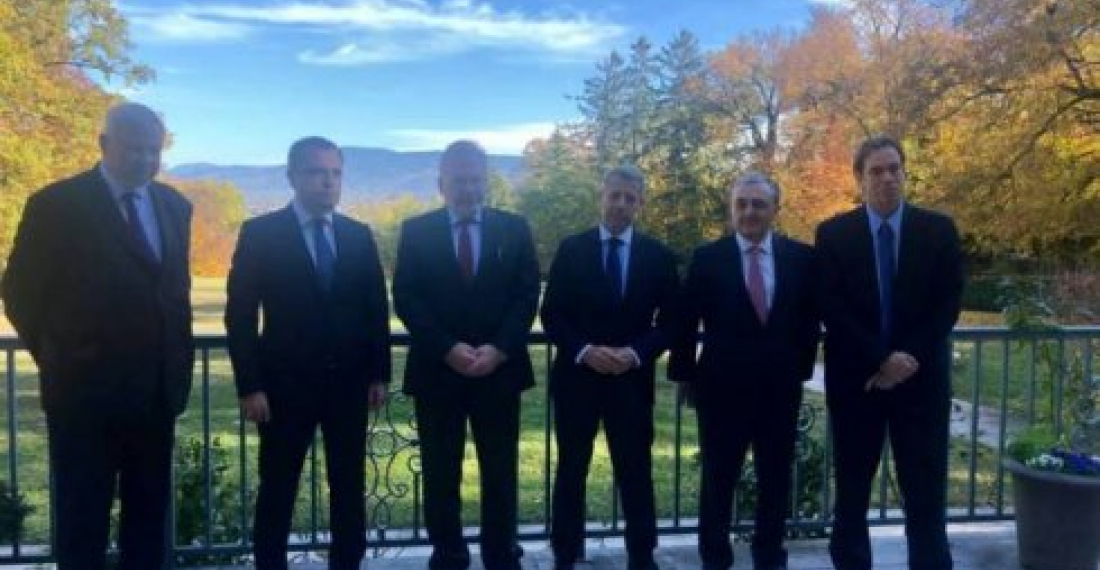The foreign ministers of Armenia and Azerbaijan have agreed on some humanitarian measures following another face to face meeting between the foreign ministers of the two countries, under the auspices of the OSCE Minsk Group co-chair countries - France, Russia and the United States in Geneva. The meeting is understood to have lasted for six hours.
A statement issued by the OSCE on Friday evening (30 October) said the Co-Chairs met separately and jointly with Armenian Foreign Minister Zohrab Mnatsakanyan and Azerbaijani Foreign Minister Jeyhun Bayramov and also held consultations with UN High Commissioner for Refugees Filippo Grandi and ICRC President Peter Maurer.
The statement continued:
The Co-Chairs once again called on the sides to implement, in full, their commitments, including the immediate establishment of a humanitarian ceasefire, in accordance with the October 10 Moscow Joint Statement, which the sides reaffirmed with Paris on October 17 and in Washington on October 25.
Without prejudice to the implementation of the ceasefire or other commitments, the sides agreed to take a number of steps on an urgent basis, including:
- The sides will not deliberately target civilian populations or non-military objects in accordance with international humanitarian law;
- The sides will actively engage in the implementation of the recovery and exchange of remains on the battlefield by providing the ICRC and PRCiO the necessary safety guarantees for facilitation;
- The sides will deliver to the ICRC and PRCiO, within one week, a list of currently detained prisoners of war for the purposes of providing access and eventual exchange;
- The sides will provide in writing comments and questions related to possible ceasefire verification mechanisms in accordance with item 2 of the October 10 joint statement.
The sides engaged in an open and substantive exchange of views aimed at clarifying their negotiating positions on core elements of a comprehensive solution in accordance with item 3 of the October 10 joint statement.
The Co-Chairs will continue working with the sides intensively to find a peaceful settlement of the conflict.
source: commonspace.eu with osce.org
photo: The Co-Chairs of the OSCE Minsk Group (Igor Popov of the Russian Federation, Stephane Visconti of France, and Andrew Schofer of the United States of America) and the Personal Representative of the OSCE Chairperson in Office (PRCiO) Andrzej Kasprzyk met with Armenian Foreign Minister Zohrab Mnatsakanyan and Azerbaijani Foreign Minister Jeyhun Bayramov in Geneva on October 30.







